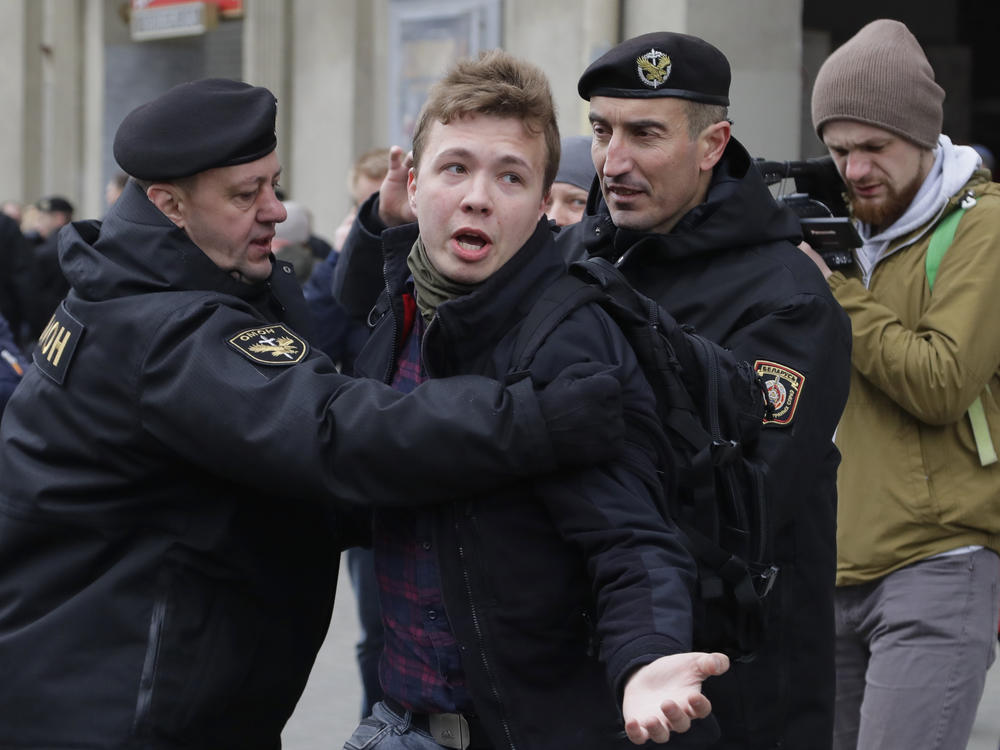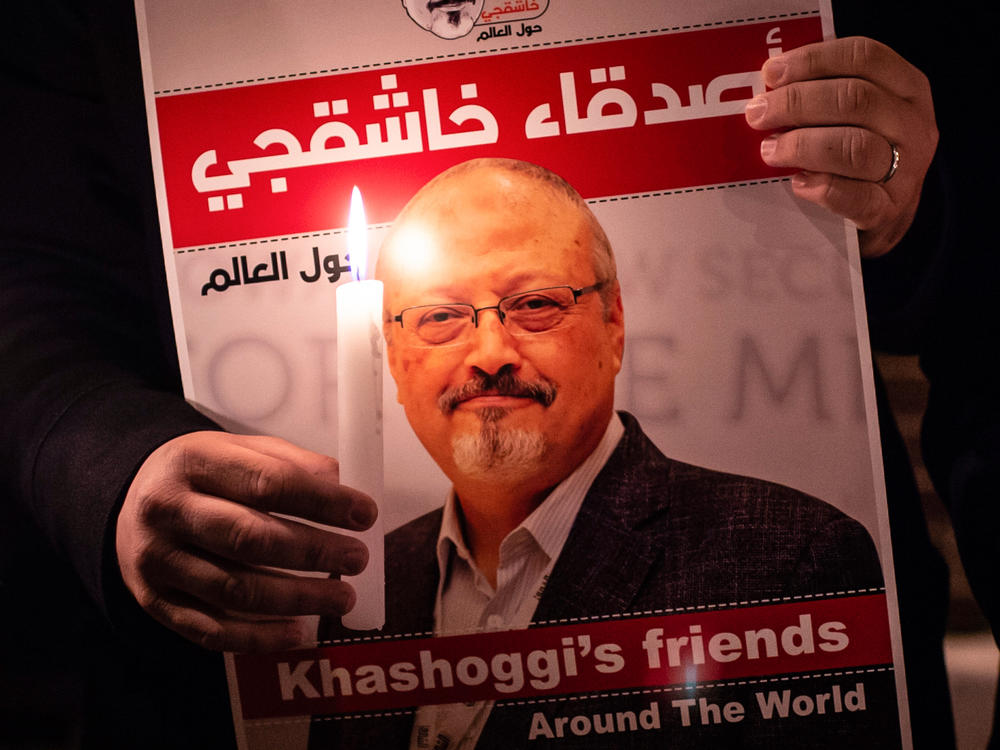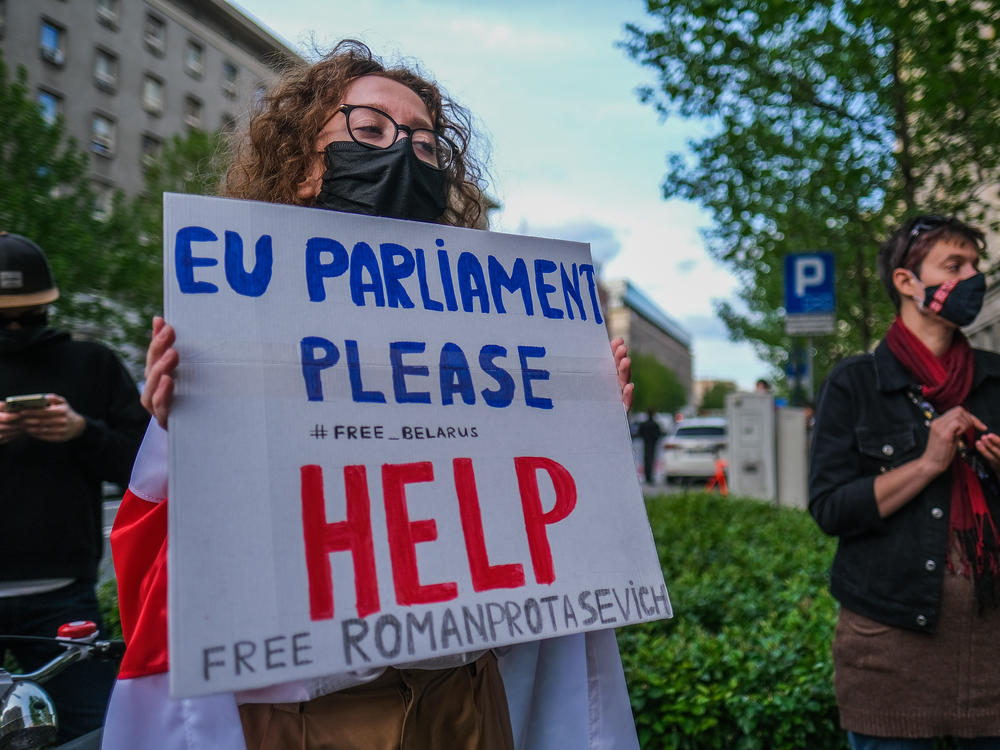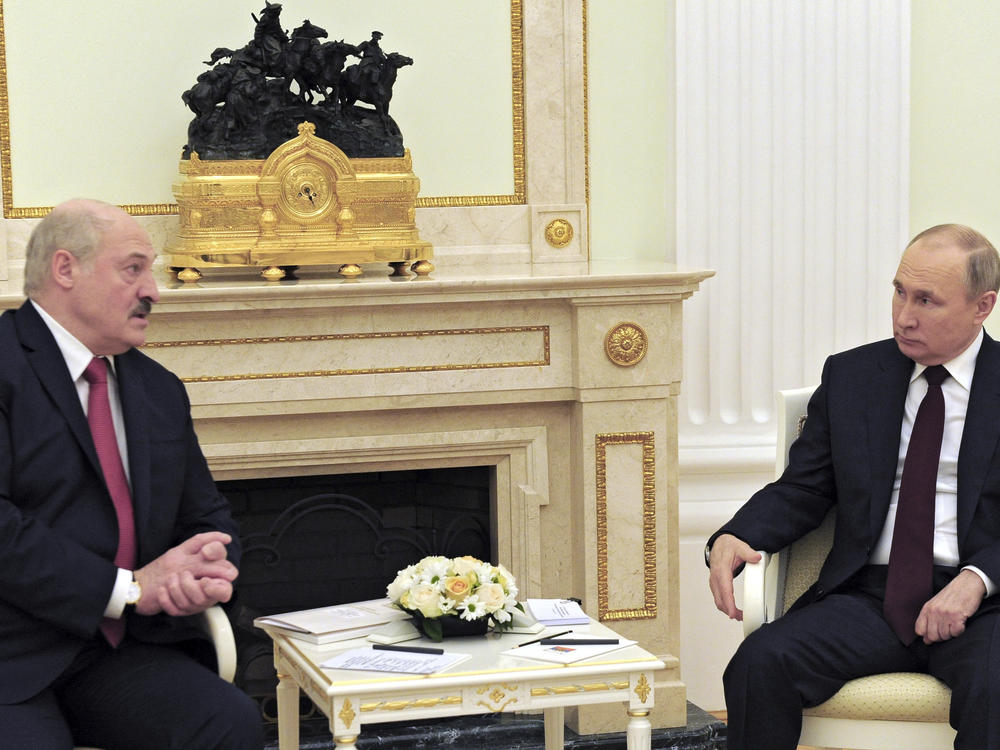Section Branding
Header Content
3 Reasons Why The Arrest Of A Journalist By Belarus Is Troubling
Primary Content
The brazen arrest of journalist Roman Protasevich by the Belarusian government, in which it forced the international flight he was aboard to land in Minsk, has sent a chill down the spine of the international community.
Protasevich, the former editor and founder of Nexta, an anti-regime blog and social media channel, has been instrumental in leading protests against authoritarian President Alexander Lukashenko.
The unprecedented steps taken by Belarus to capture a fugitive dissident have broad implications. Political leaders, human rights advocates and international law experts are calling Protasevich's detainment tantamount to an act of state terrorism.
"It's a threat to human rights. It's a threat to democracy. And it's a threat to civil aviation," says Allen Weiner, a senior lecturer in law at Stanford Law School.
Protasevich's arrest is another example of "transnational repression."
In recent years authoritarian governments have become ever-bolder in their efforts to silence opposition or threats well beyond their own borders.
Governments are reaching across continents to silence dissent among diasporas and exiles. "Transnational repression" comes in the form of assassinations, illegal deportations, abductions, online threats, and intimidation of family members, according to Freedom House, a U.S.-based nonprofit conducting research on democracy, political freedom, and human rights.
"It is a daily assault on civilians everywhere," Freedom House says.
Recent well-publicized incidents include Russia's use of nerve agents in an attack against Sergei Skripal, a former Russian military intelligence officer, and his daughter, Yulia, in England in 2018. That same year, Saudi Arabia kidnapped and murdered Jamal Khashoggi, a journalist and critic of the government, inside the country's consulate in Istanbul, Turkey.
In the case of Protasevich "they reached into the skies to take somebody," says Robert English, a professor and director of Central European Studies at the University of Southern California.
The Belarusian dissident was a passenger on a Ryanair flight which had taken off in Athens, Greece, and was on its way to Vilnius, Lithuania. As the plane crossed Belarusian airspace, air traffic controllers told the pilots that a bomb was aboard, and ordered them to make an emergency landing in Minsk. A military jet was sent to escort the plane down. Once on the ground, officials boarded the plane and arrested Protasevich. No explosives were found.
Protasevich's arrest is "beyond the pale," and takes the world to a more dangerous level, English says.
The transnational arrest or murder of dissidents has a chilling effect, Freedom House says.
"Even those who are not directly targeted may decide based on the threat against their community to remain silent," the group says. "This is true of the most extreme violence: a single killing or rendition sends ripples throughout a huge circle of people."
Belarus's actions could set a dangerous precedent.
Belarus showed a disregard for international law and aviation rules in its arrest of Protasevich, Weiner says.
"The concern is that if those rules are not abided by or there don't appear to be costs for disregarding those rules, then other people will decide, well, maybe I will find it to be convenient to violate the rules," he says.
In the past decade, the world has seen "a decline in democracy and a rise in authoritarianism," Weiner says. What's happening in Belarus is an example of this, he adds.
The international community needs "a firm and effective response to transnational acts of repression across borders," to discourage other governments from emulating Lukashenko, English says.
That concern prompted leaders from Western nations on Monday to swiftly denounce the actions and demand the release of Protasevich.
The European Union on Monday called on all airlines based in the bloc to avoid flying through Belarusian airspace. The EU also asked the European Council to ban Belarus-based airlines from flying through EU airspace or landing at its airports. Additionally, the leaders called on the council to adopt further targeted economic sanctions against Belarusian officials.
"Ordinary citizens' lives were in danger," Ireland's minister for European affairs, Thomas Byrne, told NPR's All Things Considered. "This is wrong, it's illegal and quite frankly it could happen to any of us, so we cannot allow this to happen anywhere in the world."
This further complicates relations between Russia and the U.S.
Russia is a key ally of Belarus, and the incident comes at a time when President Biden is trying to stabilize relations with Moscow.
Though no direct connection has been made between Lukashenko's actions and Russia, the Kremlin is clearly showing support for Belarus. Russian Foreign Minister Sergei Lavrov told journalists on Monday that Belarus had treated the incident with an "absolutely reasonable approach," according to The Moscow Times. Margarita Simonyan, the head of Russian state-sponsored international television channel RT, tweeted that the hijacking makes her "envy" Belarus. Lukashenko, she wrote, "performed beautifully."
Biden labeled the arrest of Protasevich a "direct affront to international norms" and joined European allies in calling for an international investigation.
"There will come a huge round of pressure to do something really severe on Belarus," English says. "And that will include a lot of people calling for severe actions and more sanctions against Russia, just when Biden is trying to turn the corner with Russia."
Copyright 2021 NPR. To see more, visit https://www.npr.org.




